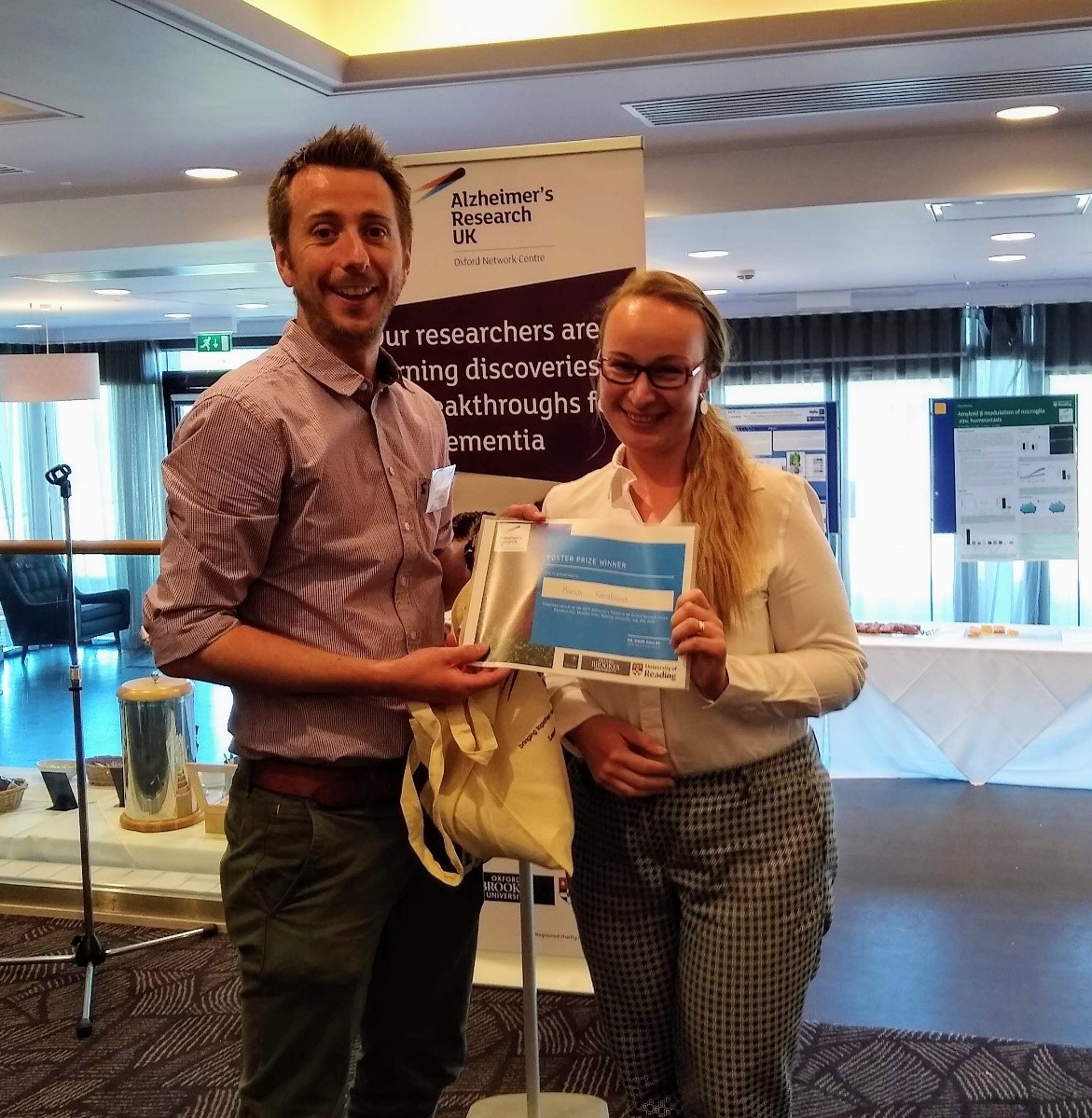DPhil student won poster prize at Alzheimer’s Research UK Dementia Research Day
Maria Karabova, a DPhil student from the James Lab, was awarded the poster prize at the Oxford Network Dementia Research Day 2019, held by Alzheimer’s Research UK (ARUK) at Reading University on 31st July 2019. This event gathers scientists for a series of talks by researchers from the dementia research labs based in the Thames Valley and informs them about the funding opportunities offered by ARUK.
“I am very honoured to be selected for the poster prize, given the depth and scope of dementia research that was presented that day”, said Maria. She also thanks her supervisors, Dr Sally Cowley and Prof. William James for “creating an inspiring and supportive environment that allows me to continually grow”.
In the event, Maria presented a poster titled “Phagocytic degradation of protein aggregates by iPS macrophages/microglia”, which details the work she has done in the first year of her PhD. She is currently developing a novel technique that allows real-time tracking of both the uptake and degradation of protein cargos by reprogrammed macrophages/microglia. These cells oversee the main form of immune defence in the central nervous system. This technique will help reveal the role of processing of neurodegenerative-related protein aggregates, such as Tau tangles, in macrophages/microglia.
“It appears that macrophages/microglia play a role as ‘double-edged swords’ in neurodegenerative diseases, such as Alzheimer’s” said Prof William James. “For the most part, their adaptive function includes the ability to detect extracellular accumulations of misfolded proteins and clear them away before they can cause damage. However, under adverse conditions, they can potentially make things worse by seeding the formation of amyloid fibrils. Our hypothesis is that this might happen by partial digestion of the protein aggregates and retention of these peptides in their acidified compartments, which is ideal for amyloid formation.”
Written by Sheng Kai Pong
